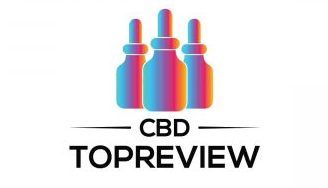11 July 2023. Written by Michael Wright. Read time: 4 minutes.
Cbd for Cardiovascular Health: What You Need to Know
If you are looking for a natural way to protect your heart, cannabidiol (CBD) might be what you need. CBD is a non-psychoactive compound found in cannabis plants that has been shown to have numerous health benefits. When it comes to cardiovascular health, CBD has been found to help reduce blood pressure, protect against heart damage, and improve overall heart health.
One way that CBD helps protect your heart is by reducing high blood pressure. High blood pressure is a major risk factor for heart disease and stroke. Studies have shown that CBD can lower blood pressure by relaxing and widening the blood vessels, which allows for better blood flow and less strain on the heart.
Another way that CBD helps protect your heart is by reducing oxidative stress and inflammation. Oxidative stress and inflammation are both major contributors to heart disease. CBD is a powerful antioxidant and anti-inflammatory agent, which means it can help protect your heart from damage caused by these harmful processes.
If you want to learn more about how old you have to be to use CBD, check out this article.
The Science Behind Cbd’s Impact on the Heart
The science behind CBD’s impact on the heart is complex, but researchers have made some exciting discoveries. CBD works by interacting with the body’s endocannabinoid system, which is involved in regulating a wide range of physiological processes, including cardiovascular function.
Studies have shown that CBD can help protect against heart damage caused by oxidative stress and inflammation. One study found that CBD reduced the size of damaged areas in the heart by 30% and improved heart function in animals with heart disease. Another study found that CBD reduced inflammation and improved circulation in people with heart disease.
There is also evidence to suggest that CBD can help prevent the development of heart disease. One study found that people who used cannabis had a lower risk of developing heart disease compared to those who did not use cannabis. While more research is needed, these findings suggest that CBD could be a promising tool for protecting and improving heart health.
The Benefits of Using CBD for Cardiovascular Health
If you are looking for a natural way to improve your cardiovascular health, CBD might be worth considering! Studies have shown that CBD could be a game-changer when it comes to reducing blood pressure and protecting against heart damage.
The reason CBD is so effective is that it interacts with the endocannabinoid system (ECS) in our bodies, which is responsible for regulating many physiological processes. CBD can help widen the blood vessels, improve blood flow, and reduce inflammation – all essential for a healthy heart. With regular use, CBD can help promote overall cardiovascular health and reduce the risk of heart disease and stroke.
If you’re curious about CBD dosage and consumption methods, keep reading!
Can you take CBD and ibuprofen together?
Dosage and Consumption Methods for CBD
When it comes to taking CBD, everyone is different – there is no one-size-fits-all approach. The dosage and consumption method will depend on various factors, including the individual’s body weight, health condition, and desired outcome.
If you’re a new user, start with a low dosage and work your way up gradually. A good starting point is between 10-20mg per day. It’s essential to track your dosage and observe how your body responds. If you don’t see any noticeable changes, you can increase the dosage by 5mg and continue the cycle until you reach your desired effect.
CBD can be taken in different forms such as oils, capsules, tinctures, edibles, or topicals. Each consumption method has its benefits and drawbacks. For example, taking CBD orally may take longer to feel the effects than inhaling or using a topical. It’s also important to remember that not all CBD products are created equal – make sure to purchase from a reputable brand that provides third-party lab test results.
Learn more about CBD dosage and consumption methods here.
Potential Risks and Side Effects to Keep in Mind
While CBD has many potential benefits for cardiovascular health, it is important to be aware of potential risks and side effects. While CBD is generally considered safe, some people may experience side effects such as dry mouth, dizziness, and fatigue. Additionally, CBD can interact with certain medications, so it is important to talk to your doctor before using CBD if you are taking any prescription medications.
Another potential risk of using CBD is the quality of the product. Because CBD is not regulated by the FDA, it is important to do your research and choose a reputable brand that uses third-party lab testing to ensure the purity and potency of their products. If you are unsure how to find a trustworthy CBD brand, check out this guide on how to find high-quality CBD products.
Conclusion: Take Care of Your Heart with Cbd
If you are looking for a natural way to protect your heart, CBD could be a promising option. With its ability to lower blood pressure, reduce inflammation, and protect against heart damage, CBD has a lot of potential benefits for cardiovascular health. However, it is important to be aware of potential risks and side effects, and to choose a high-quality CBD product from a reputable brand.
By taking care of your heart with CBD, you can improve your overall health and well-being. To learn more about how to incorporate CBD into your wellness routine, check out this article on the best CBD oils for anxiety.
Michael Wright is a novelist from San Francisco, CA. His books are known for their intricate plots, well-developed characters, and compelling storylines.










